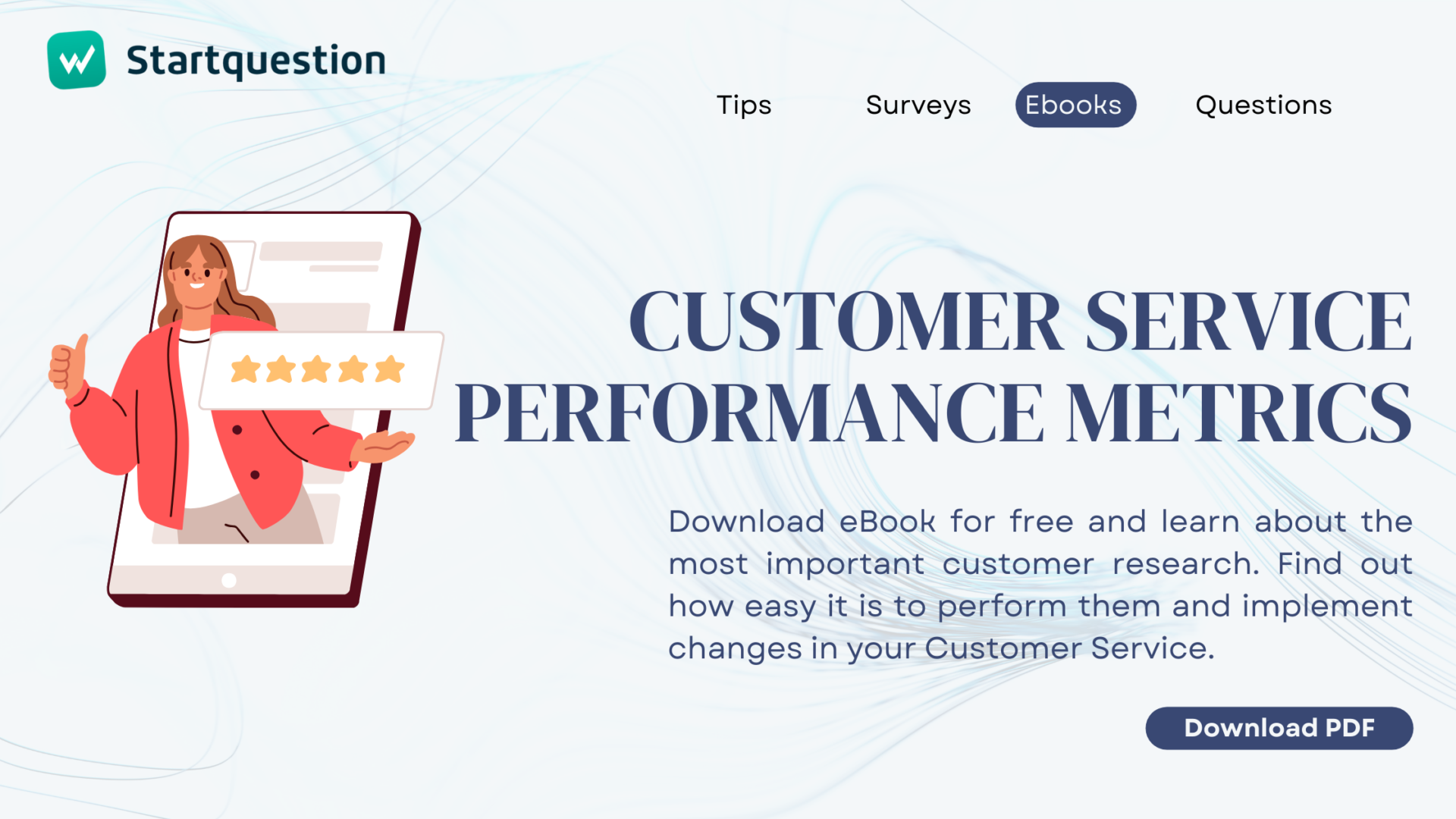Feedback is an English term that has become widely used in most other languages. It means a statement of a conversation participant in which they reveal their observations about the behavior and statements of another conversation participant.
Its source comes from group psychotherapy, interpersonal communication training, and training. Currently, however, it is translated in a much broader context – most often as an answer to a given question, clarification of an issue or statement in a survey or research.
I’m waiting for your feedback! Please leave feedback or Your feedback is important to us – each of us has certainly come across such sentences. We are asked for feedback practically anywhere – after making purchases, visiting a shop, using a service, etc. In online surveys, this word has a special meaning, because it is online research that is considered one of the most effective and easiest ways to collect feedback.
We give and receive feedback every day
Feedback is not only related to the topic of online research. It does not only apply to companies or organizations. You may not realize it, but feedback is provided every day and many times without realizing it. Comments, answers to questions, sharing opinions, filling out forms – all this constitutes feedback.
In arguably the most famous book by Roland and Frances Bee on the subject of feedback, we learn that it constitutes: “Making learners aware of which of their achievements has reached an appropriate level, so that they can repeat this behavior in the future, and explain to them what was below the required standard to determine a plan with them to avoid similar behavior in the future, and instead move towards the desired standard “.
This definition implies not only what feedback is, but also what functions it performs. Experts emphasize that on the basis of the feedback obtained, it is possible to gain knowledge about how one’s actions are assessed by the environment. Based on these assessments, it is possible to change whatever is not functioning properly, and thus it is easier to achieve the intended goals.
Startquestion is a survey software
Gather feedback via weblink, social media, email, and more.
No credit card required · Cancel any time · GDRP Compilant
Why are we not willing to provide feedback?
Mainly because we are afraid to… criticize. We assume that it is better not to express your opinion at all than to admit that it is negative. It’s obvious – nobody likes to listen to criticism but experience shows that it can be constructive. On its basis, it is possible to find out what is wrong to start working towards a change for the better.
Likewise, you can talk about feedback in the context of companies. The feedback that is collected using the Net Promoter Score, Customer Effort Score, or with the help of many other online surveys provides the company with basic knowledge about a customer (or an employee) and their opinion. Without this knowledge, it would be impossible to obtain information about what areas are functioning well and what is worth changing. So sometimes negative feedback can turn out to be more valuable than positive feedback. Why? Because it allows you to eliminate minor or serious mistakes that make you lose customers or valuable employees, etc.
Is every piece of feedback valuable? What to listen to and what to ignore
When running a business, you are well aware that the enormity of feedback that you receive often does not have any value. Moreover – its analysis can lead to wrong conclusions and waste of valuable time. When asked what kind of feedback should be avoided, Professor Dorie Clark, a respected specialist in marketing communication strategy replies in the Harvard Business Review.
Use ready-made survey templates for your research
She lists 8 types of useless feedback
1. Unclear information
The first rule of selecting information is to ignore feedback that is unclear. If your work or product is judged to be in need of improvement or not good enough, but there are no specifics behind the review or they are very imprecise, there are two options: you should not bother with them or ask the customer for clarification and specific examples.
2. Information on solutions that work without any reservations
“If you try to reach everyone, you will not reach anyone” is one of the basic principles of brand marketing. All products and services available on the market are created, or at least should be created, with a specific audience in mind.
3. Single opinions
In the event that a large number of customers share a similar opinion, it is necessary to listen to their voice and take their opinion into account. The situation is different when we find one negative opinion in the mass of positive opinions. If it is based on constructive criticism, you should not ignore it blindly and thoughtlessly but remember that a single person is never a trendsetter. While this type of isolated feedback does not deserve to be “thrown into the trash,” it is not worth paying close attention to until similar feedback begins to flow to you from another source.
4. The voice of “haters”
“Is it possible that a small bit of substantive criticism can be found within infantile rhetoric?” Clark asks. And she replies, “It’s safe to ignore blatant haters. If they are right, sooner or later you will hear about it from someone else, in a more professional and mannered form. “
5. Opinions from untrusted sources
Everyone has their own opinion, but that doesn’t mean that every opinion is important and useful – it’s the most important reason to get feedback only from trusted sources. According to Clark, in times of information overload in the public space, the best way to separate the important from the irrelevant information is definitely to decide whose opinion you should take into account and then use only such people’s opinions.
Feedback from the right people who are sufficiently informed, helpful and with good intentions cannot be overestimated. But for the rest of the opinions, the best you can do is learn to ignore them.
6. Declarations and resolutions
In addition to the types of the feedback mentioned by Dorie Clark, which you can clearly ignore, you also encounter opinions that could potentially be misleading, despite originating from a reliable source, precise articulation, and sincere intentions of the authors. The human psyche is characterized by the fact that very often it prompts us to formulate categorical judgments under the influence of the current specific and temporary context, but as it turns out, the attitude declared than is not always reflected in actions.
7. Outdated statements
It is wrong to define the future needs of your business partner by approaching their situation like carbon paper to a similar company at a slightly higher stage of development. Even if your client clearly declares that the product that you can offer them will become attractive to them in the near future, after fulfilling a simple condition, you should treat this type of feedback with reserve. In practice, small businesses usually do not know what market decisions they will make when they become a bigger player. It is safe to focus on actual needs rather than hypothetical ones.
8. Opinions of third parties
When you learn from a company employee that their supervisor will certainly be interested in your offer, you should treat such information at most as a premise for a better investigation of the matter. When obtaining second-hand feedback, try to reach deeper to get directly to the person who interacts with your offer on a daily basis. The reasons behind obtaining unreliable feedback from a theoretically reliable source can be prosaic, ranging from the willingness to build a good relationship with you, through incomplete communication, to simple ignorance.
Online surveys as the best way to collect feedback
As we have mentioned earlier, an online survey will be the easiest way for your company or institution to obtain valuable feedback. Let us explain why this is so:
- Online surveys make it possible to reach a large number of respondents in a short time. With a database of your employees or clients’ addresses available, you can collect feedback from a wide range of people using various methods of survey distribution (sending invitations by e-mail, including a widget on the company’s website, etc.).
- Using a survey created on the Startquestion.pl platform you can easily guarantee the anonymity of its respondents. Due to the above, you can be sure that the opinions will be honest, and that customers or employees will not have to worry about the consequences of giving negative feedback.
- You can easily make your survey look aesthetically pleasing and encourage people to fill it out just through the design itself. Besides, a questionnaire can include your company logo so you can be sure that the person filling it out will associate it with your organization. Refer to our guide to find out how to design online survey graphics
- Online surveys make it possible to gather all the results in one place. By applying filters and cross tables you can also conduct an advanced analysis of them. All this can be done with one tool.
- You can present the results collected using the online survey in the form of graphically attractive reports. Automatic generation of reports allows you to access the latest results at any time and save reports in various formats.
Collect feedback using the Startquestion tool!
Now you can quickly and easily collect opinions from your clients, employees or students using an online survey created on the Startquestion platform. Create a free account and start collecting valuable feedback!
In our guide, you will find instructions and articles to help you with creating a questionnaire, survey distribution, or analysis of the results. We have also prepared ready survey examples targeted at employees, customers, and other groups of respondents, thanks to which the creation of the questionnaire will be even faster and easier.




